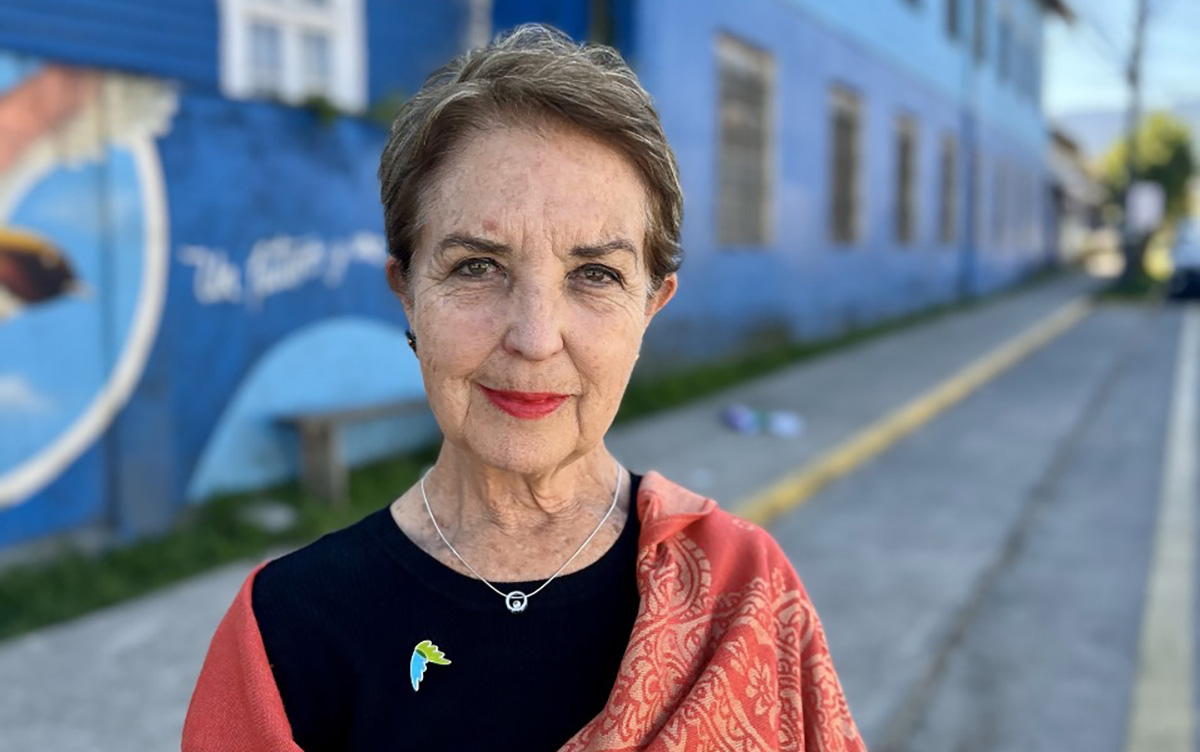Chile
New face of Chilean politics includes LGBTQ rights agenda
Municipal and regional elections took place on Oct. 27

Chile’s municipal and regional elections that took place on Oct. 27 have brought with them a renewed focus on LGBTQ rights and diversity.
In a context where the center right has managed to stand out against the Republicans, political parties have incorporated into their platforms a commitment towards the inclusion of queer people. Some Chilean political scientists say the elections have shown a country inclined to vote for the opposition Chile Vamos coalition, even though the left governs Chile.
The ruling party, grouped in Contigo Chile Mejor, had a setback similar to what happened in the 2021 municipal and regional elections — it lost 39 communes that include Santiago, San Miguel, Ñuñoa, and Independencia.
Voters in Maipú, the country’s second most populous commune, re-elected Tomás Vodanovic from President Gabriel Boric’s Frente Amplio.
Frente Amplio also won in Viña del Mar, and other communes, and saw victory in others that include Valparaíso, where the Chilean Congress is located.
Openly LGBTQ candidates have emerged since 2012, and some of them have made history. These include Congresswoman Emilia Schneider, a Frente Amplio member who is transgender.
Several LGBTQ candidates have resonated with voters within the framework of these elections; not only highlighting their identity, but their commitment to the struggle for equal social rights.
Gloria Hutt, president of Evolución Política (Evópoli), a party that is part of the Chile Vamos coalition, stressed the importance of diversity in its agenda.
“Part of Evópoli’s agenda is inclusion and diversity, including the diversity of communities of different sexual identities. And in this election we had a dozen candidates who belong to sexual diversities, some of them won, others did not, but it is part of the agenda with which we are permanently working,” Hutt told the Washington Blade.
“We believe that it is also part of the freedom of people to deploy their life project without anything else interfering but their own identity and without prejudice preventing them from deploying that identity,” she added.

The reelection of figures, such as Viña del Mar Mayor Macarena Ripamonti, and Vodanovic’s success in Maipú reflect significant support for the progressive agenda.
“First of all I would like to emphasize that we saw an impeccable process where citizens were able to express their preferences,” Frente Amplio Secretary-General Andrés Couble told the Blade. “We believe that the results allow us to look to the future with optimism.”

Couble highlighted the importance of LGBTQ candidacies in decision-making spaces.
“We think it is important to promote them and that they reach elected positions, because they allow us to bring the struggles for equal rights and respect and promotion of diversity to institutional spaces,” he said.
Couble at the same time highlighted the victory of Bladymir Muñoz, the Chilean councilman who received the most votes, as an example of the advance towards a more inclusive representation.
Muñoz is a Frente Amplio member. He received 41,669 votes in Maipú.

Chile
Far-right José Antonio Kast elected Chile’s next president
Advocacy group declares ‘state of alert’ over president-elect’s opposition to LGBTQ rights

José Antonio Kast on Sunday won the second round of Chile’s presidential election.
Kast is the far-right leader of the Republican Party who was a member of the country’s House of Deputies from 2002-2018. He defeated Jeannette Jara, a member of the Communist Party of Chile who was former labor and social welfare minister in outgoing President Gabriel Boric’s government, by a 58.2-41.8 percent margin.
The election’s first round took place on Nov. 16.
Kast and Jara faced each other in the runoff after no candidate received at least 50 percent of the vote in the first round. Kast will take office on March 11.
“Under his leadership, we are confident Chile will advance shared priorities to include strengthening public security, ending illegal immigration, and revitalizing our commercial relationship,” said U.S. Secretary of State Marco Rubio on Sunday in a statement. “The United States looks forward to working closely with his administration to deepen our partnership and promote shared prosperity in our hemisphere.”
The Washington Blade has previously reported Kast has expressed his opposition to gender-specific policies, comprehensive sex education, and reforms to Chile’s anti-discrimination laws. The president-elect has also publicly opposed the country’s marriage equality law that took effect in 2022.
The Movement for Homosexual Integration and Liberation, a Chilean LGBTQ and intersex rights group known by the acronym Movilh, in a statement acknowledged the election result. Movilh also declared a “state of alert, given this leader’s (Kast’s) public and political trajectory, characterized for decades by systematic opposition to laws and policies aimed at equality and nondiscrimination of LGBTIQ+ individuals.”
“We urge the president-elect and far-right sectors that follow him to understand and internalize (the fact) that the rights of LGBTIQ+ people are inscribed in the universality of human rights, and they are not built upon an ideology or a political trend,” said Movilh in its statement. “This is not, and never has been, a left-wing or right-wing issue, although some on both sides have gone to great lengths to suggest otherwise, without any basis other than their own partisan or electoral aspirations.”
Organizado Trans Diversidades, a group that advocates on behalf of trans and nonbinary Chileans, on social media said it will “continue the fight for our community’s human rights.”
Chile
Chilean presidential election outcome to determine future of LGBTQ rights in country
Far-right candidate José Antonio Kast favored to win Dec. 14 runoff.

The results of Chile’s presidential election will likely determine the future of LGBTQ rights in the country.
While Congresswoman Emilia Schneider, the first transgender woman elected to Congress, managed to retain her seat on Sunday, the runoff to determine who will succeed outgoing President Gabriel Boric will take place on Dec. 14 and will pit two diametrically opposed candidates against each other: the far-right José Antonio Kast and Communist Jeannette Jara.
Schneider, an emblematic figure in the LGBTQ rights movement and one of the most visible voices on trans rights in Latin America, won reelection in a polarized environment. Human rights organizations see her continued presence in Congress as a necessary institutional counterweight to the risks that could arise if the far-right comes to power.

Kast v. Jara
The presidential race has become a source of concern for LGBTQ groups in Chile and international observers.
Kast, leader of the Republican Party, has openly expressed his rejection of gender policies, comprehensive sex education, and reforms to anti-discrimination laws.
Throughout his career, he has supported conservative positions aligned with sectors that question LGBTQ rights through rhetoric that activists describe as stigmatizing. Observers say his victory in the second-round of the presidential election that will take place on Dec. 14 could result in regulatory and cultural setbacks.
Jara, who is the presidential candidate for the progressive Unidad por Chile coalition, on the other hand has publicly upheld her commitment to equal rights. She has promised to strengthen mechanisms against discrimination, expand health policies for trans people, and ensure state protection against hate speech.
For Schneider, this new legislative period is shaping up to be a political and symbolic challenge.
Her work has focused on combating gender violence, promoting reform of the Zamudio Law, the country’s LGBTQ-inclusive nondiscrimination and hate crimes law named after Daniel Zamudio, a gay man murdered in Santiago, the Chilean capital, in 2012, and denouncing transphobic rhetoric in Congress and elsewhere.
Schneider’s continued presence in Congress is a sign of continuity in the defense of recently won rights, but also a reminder of the fragility of those advances in a country where ideological tensions have intensified.
LGBTQ organizations point out that Schneider will be key to forging legislative alliances in a potentially divided Congress, especially if Kast consolidates conservative support.
Chile
Gay pharmacist’s murder sparks outrage in Chile
Francisco Albornoz’s body found in remote ravine on June 4

The latest revelations about the tragic death of Francisco Albornoz, a 21-year-old gay pharmacist whose body was found on June 4 in a remote ravine in the O’Higgins region 12 days after he disappeared, has left Chile’s LGBTQ community shocked.
The crime, which was initially surrounded by uncertainty and contradictory theories, has taken a darker and more shocking turn after prosecutors charged Christian González, an Ecuadorian doctor, and José Miguel Baeza, a Chilean chef, in connection with Albornoz’s murder. González and Baeza are in custody while authorities continue to investigate the case.
The Chilean Public Prosecutor’s Office has pointed to a premeditated “criminal plan” to murder Albornoz.
Rossana Folli, the prosecutor who is in charge of the case, says Albornoz died as a a result of traumatic encephalopathy after receiving multiple blows to the head inside an apartment in Ñuñoa, which is just outside of Santiago, the Chilean capital, early on May 24. The Prosecutor’s Office has categorically ruled out that Albornoz died of a drug overdose, as initial reports suggested.
“The fact that motivates and leads to the unfortunate death of Francisco is part of a criminal plan of the two defendants, aimed at ensuring his death and guaranteeing total impunity,” Folli told the court. “The seriousness of the facts led the judge to decree preventive detention for both defendants on the grounds that their freedom represents a danger to public safety.”
Prosecutors during a June 7 hearing that lasted almost eight hours presented conservations from the suspects’ cell phones that they say showed they planned the murder in advance.
“Here we already have one (for Albornoz.) If you bring chloroform, drugs, marijuana, etc.,” read one of the messages.
Security cameras captured the three men entering the apartment where the murder took place together.
Hours later, one of the suspects left with a suitcase and a shopping cart to transport Albornoz’s body, which had been wrapped in a sleeping bag. The route they followed to dispose of the body included a stop to buy drinks, potato chips, gloves, and a rope with which they finally descended a ravine to hide it.
Advocacy groups demand authorities investigate murder as hate crime
Although the Public Prosecutor’s Office has not yet officially classified the murder as a hate crime, LGBTQ organizations are already demanding authorities investigate this angle. Human rights groups have raised concerns over patterns of violence that affect queer people in Chile.
The Zamudio Law and other anti-discrimination laws exist. Activists, however, maintain crimes motivated by a person’s sexual orientation or gender identity are not properly prosecuted.
“This is not just a homicide, it is the cruelest expression of a society that still allows the dehumanization of LGBTQ+ people,” said a statement from Fundación Iguales, one of Chile’s main LGBTQ organizations. “We demand truth, justice, and guarantees of non-repetition.”
The Movement for Homosexual Integration and Liberation (Movilh), meanwhile, indicated that “since the first day the family contacted us, we have been in conversations with the Prosecutor’s Office so that this fatal outcome is thoroughly investigated, including the possible existence of homophobic motivations or components.”
The investigation into Albornoz’s murder continues, and the court has imposed a 90-day deadline for authorities to complete it.
-

 Mexico5 days ago
Mexico5 days agoUS Embassy in Mexico issues shelter in place order for Puerto Vallarta
-

 Real Estate5 days ago
Real Estate5 days ago2026: prices, pace, and winter weather
-

 Theater5 days ago
Theater5 days agoJosé Zayas brings ‘The House of Bernarda Alba’ to GALA Hispanic Theatre
-

 Netherlands4 days ago
Netherlands4 days agoRob Jetten becomes first gay Dutch prime minister



















